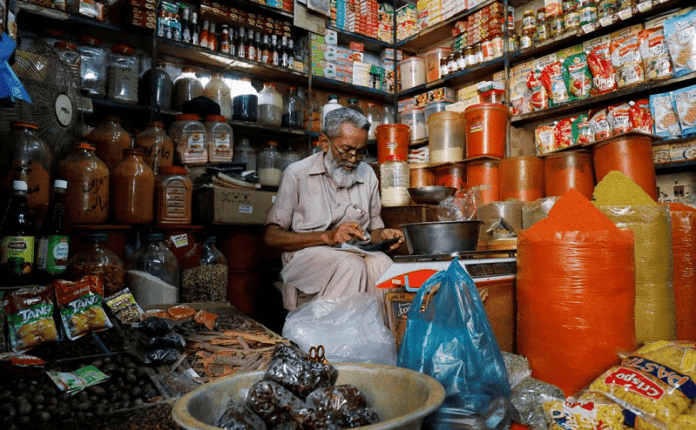ISLAMABAD: Pakistan is currently facing five major economic challenges that are leading to a rise in poverty and social vulnerabilities, according to the Ministry of Finance. The announcement comes a day after the dissolution of the national assembly and the federal cabinet.
In its first quarterly performance report to the Asian Development Bank (ADB), the Ministry of Finance highlighted the progress made in the utilization of funds for the “Building Resilience with Active Country-cyclical Expenditures” (BRACE) program, which received $1.5 billion. The report stated that 41.5% of the budget allocated for social protection was utilized in the quarter ending on December 31, 2022.
The report further revealed that current expenditures increased by 30%, reaching Rs6.061 trillion in July-December FY23, compared to Rs4.676 trillion in the same period of the previous year. A significant part of this increase was due to higher mark-up payments, which rose by 77% due to increased servicing on domestic and foreign debt caused by higher interest rates. The Public Sector Development Programme (federal and provincial) experienced a modest growth of 4.5% during the first half of the current fiscal year.
Total expenditures also witnessed a growth of 19.8% to Rs6.382 trillion in July-December FY23, compared to Rs5.328 trillion in the same period of the previous year. Total revenue, during the first half of FY23, increased by 18.8% to reach Rs4.699 trillion, with non-tax collection contributing to a 26.4% increase, while tax collection grew by 17%.
The report emphasized that the government is taking measures to support the business and agriculture sectors in order to generate employment, protect against job losses, and ensure food security. However, it also acknowledged the persistence of several challenges that continue to impact the national economy.
The first challenge listed is high fuel prices, worsened by steep exchange rate depreciation. Not only do high fuel prices directly reduce petroleum product consumption, but they also affect sectors such as electricity production, industrial demand, goods transportation, mining, construction, and others.
The second challenge is the impact of the Russian-Ukraine war on the economy of Pakistan, particularly on edible oil prices. Edible oil has a significant impact on GDP and household consumption, with a greater effect observed among poor households. As Pakistan heavily relies on imported palm oil, any upward shock in prices can lead to a deterioration in the diet quality of children.
The third challenge is the ongoing issue of rising poverty. The report highlights that the Russian-Ukraine war crisis has had a serious impact on poverty rates, potentially pushing millions more people into poverty due to the devastation caused by the 2022 floods. Any expansion of the Benazir Income Support Programme or cash handouts can further strain the fiscal deficits.
Record inflation is another key challenge mentioned in the report, with food inflation being the highest in the history of Pakistan. The increase in prices of petroleum products, electricity, and gas, along with currency depreciation, negatively impact household consumption and lead to greater poverty, especially in rural areas.
Lastly, the report highlights the lingering effects of the 2022 floods, which have led to lower economic growth, increased poverty, food insecurity, and deteriorating diet quality, primarily in rural areas.
Overall, the Ministry of Finance recognizes the need to address these challenges in order to alleviate poverty, ensure food security, and improve the overall well-being of the Pakistani people.
